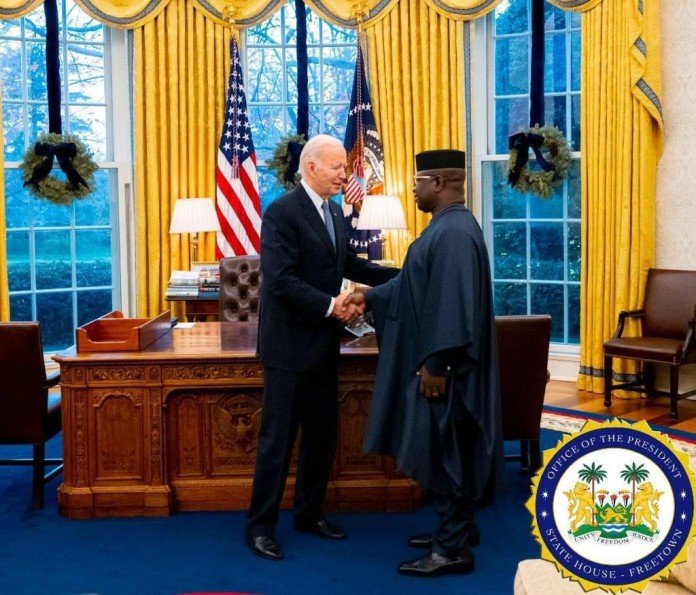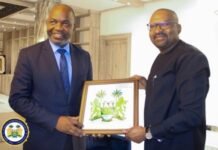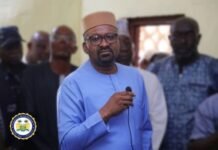By Amin Kef
The three day U.S-Africa Leaders Summit, which commenced on the 13th December, 2022 in the United States of America ended yesterday the 15th December, 2022.
It could be recalled that prior to the commencement of the Summit it was announced by the White House, on the 19th November, 2022, that President Joseph R. Biden will be hosting the second U.S. – Africa Leaders’ Summit in 2022, as part of his administration’s commitment to revitalize global partnerships and alliances that will include Africa, based on the principles of mutual respect, shared interest and values.
Cognizance must also be taken of the fact that on the occasion of the 34th Ordinary Session of the African Union Assembly held in Addis Ababa, on February 5, 2021, the renewal of the United States engagement towards Africa was particularly manifested in President Biden’s virtual remarks.
At that material time, the U.S. President underscored the United States “readiness to be Africa’s partner, in solidarity, support, and mutual respect and to re-engage with the Africa Union”.
It is as well significant to note that the Africa Diplomatic Corps (ADC) accredited to the United States has been actively advocating for an effective action and result oriented Summit that considers Africa’s development priorities as enshrined in the AU Agenda 2063 – ‘The Africa We Want’ and other various continental policy framework and strategies which capture the aspirations of the African people for a continent that is integrated, peaceful and prosperous that takes its rightful place in the international arena.
“The summit … is rooted in the recognition that Africa is a key geopolitical player. The continent will shape the future not just of the African people, but also the world,” US National Security Adviser Jake Sullivan stated.
Forty-nine African Heads of State and leaders, including President Julius Maada Bio of Sierra Leone as well as the African Union, were invited to the summit.
The underlying objective of the summit, it must again be stated, was that President Joe Biden sought to rebuild Washington’s relationship with other countries, as well as to re-engage with global organizations like the United Nations, after four years of his predecessor Donald Trump’s “America First” approach to foreign policy.
The US role in Africa receded during that time, and Biden administration officials have stressed the need to strengthen ties with like-minded countries in the region.
Highpoint of the Summit was that working closely with Congress, the US will commit $55bn to Africa over the course of the next three years.
During the course of the summit, President Joe Biden met with leaders of six African nations that will be holding elections in 2023 and urged them to ensure that balloting is free and fair.
He held a private meeting at the White House on Wednesday with leaders from the Democratic Republic of the Congo, Gabon, Liberia, Nigeria, Madagascar, and Sierra Leone to discuss elections and democracy in Africa. The US President was joined by Secretary of State Antony Blinken, National Security Advisor Jake Sullivan, and Samantha Power, the administrator of the US Agency for International Development.
“I want to be clear that having a meeting about elections in 2023 is not about us raising the alarm bell or claiming we’ve got concerns and then solutions,” Sullivan said at a Monday press briefing. “It’s rather to say: There are important elections coming up, we would like to do everything we can to support those elections being free, fair and credible.”
During the summit, Biden said the US is signing a memorandum of understanding with the Secretariat of the African Continental Free Trade Area. The Africa-wide trade pact would be the world’s biggest free-trade zone by area when it becomes fully operational by 2030.
The President also said the US would invest in African infrastructure, citing what he called the first-ever regional transport compact from the Millennium Challenge Corporation, which would invest $500 million to build and maintain roads and implement policies to reduce transportation costs. Biden said he expected the MCC to commit an additional $2.5 billion in Africa over the next three years.
And Biden hailed projects from US companies, including a collaboration between Microsoft Corp. (MSFT) and Viasat Inc. (VSAT) to bring internet access to 5 million Africans. Microsoft aims to bring access to 100 million people across the continent by the end of 2025. Cisco is working with the Biden administration to train 3 million more technology workers in Africa over the next 10 years.
Biden is also throwing his weight behind an effort by the African Union to join the Group of 20 as a permanent member, and for the continent to hold a permanent seat on the United Nations Security Council. The White House is tapping Johnnie Carson, an experienced diplomat focused on African relations, to implement actions emanating from the summit.
Thursday was dedicated to high-level discussions among leaders, with President Biden opening the day with a session on partnering on Agenda 2063, the African Union’s strategic vision for the continent. A working lunch chaired by Vice President Harris followed.
The President closed the day with a discussion on food security and food systems resilience, a critical issue for his African partners who have been disproportionately impacted by the rise in food and fertilizer prices and disruptions to global supply chains as a result of Russia’s war against Ukraine.




